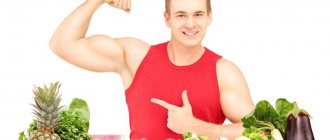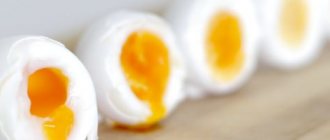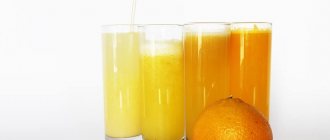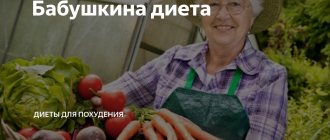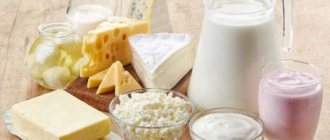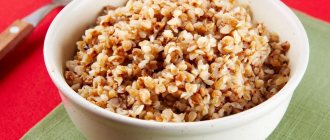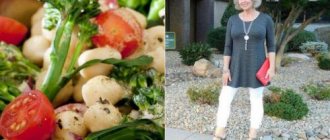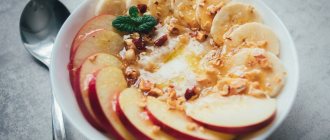A vegetarian diet has become increasingly popular lately. For some reason, it is believed that switching to vegetarianism can relieve excess weight and many health problems. Perhaps this is how stereotypes have developed: if you don’t eat fatty foods, you lose weight; if you exclude meat from your diet, you live longer. Undoubtedly, meat is rich in cholesterol and saturated fats, the excessive consumption of which can harm the body. But the fact is that vegetarianism is not a diet, it is a way of life that entails avoiding food of animal origin. And in order to lose weight, giving up meat alone will not be enough, because people who do not eat it can easily afford sweets, chips, various sauces, and other high-calorie foods. That is why a special diet has been developed that will help you get rid of extra pounds, while observing the principles of vegetarianism. Reviews about this diet are very contradictory, because it has both supporters and opponents who claim that a complete refusal of protein foods will cause irreparable harm to the body. But those who practice vegetarianism as a way of life completely disagree with them.
Varieties and benefits of vegetarianism
Content:
- Varieties and benefits of vegetarianism
- Basic principles and types of vegetarian diet
- Sample menu for a week of vegetarian diet
- Sample menu for a month of vegetarian diet
- Sports vegetarian diet
- Harm and contraindications of a vegetarian diet
- Advantages and disadvantages of a vegetarian diet
- conclusions
Many people think that the vegetarian diet was invented specifically for vegetarians, but this is not entirely true. The fact is that there are several varieties of vegetarianism that prohibit the consumption of one or another food depending on one’s beliefs. For example, vegetarians do not eat exclusively meat, many for humanitarian and ideological reasons. But their diet still includes milk, cottage cheese, eggs and other so-called kill-free products. Nowadays they are also called lacto-vegetarians or lacto-ovo-vegetarians. A stricter veganism excludes absolutely all products of animal origin, including slaughter-free ones. There is also a raw food diet, which allows you to eat raw foods that have not undergone heat treatment, since it is believed that temperatures above 46 degrees are detrimental to enzymes - enzymes that help speed up metabolism. There is also fruitarianism, whose followers eat exclusively fruits.
In any case, the main food of vegetarians is and remains plant foods. Of course, such food is lower in calories and contains the least amount of fat than protein foods. Eating fruits and vegetables has a positive effect on the body, as they are rich in valuable fiber, beneficial minerals and vitamins. Plant foods are good for strengthening the body's immune system. In addition, by giving up animal food you can improve your heart function, cleanse your blood vessels, and improve blood supply to your brain.

This diet will be useful for people suffering from diabetes, as it can help normalize blood glucose levels. Among vegetarians, there are fewer people susceptible to hypertension and cancer. Their risk of developing a stroke or heart attack is also reduced.
In addition, vegetarianism can bring other benefits to the body:
- helps normalize the digestive system;
- cleanses the body of dangerous toxins and harmful waste;
- restores beneficial intestinal microflora;
- improves mood and energizes;
- reduces phosphorus, thus preventing the development of kidney diseases.
Vegetarian system for weight loss and health
Doctors, nutritionists and scientists say that a vegetarian diet is useful for losing weight and improving the health of the body, since it limits the accumulation of harmful cholesterol and fats. Adherents of this nutritional system eat foods of plant origin, rich in dietary fiber, enriched with vitamins and beneficial components.
Geobotanical products contain much less calories and fat than animal products. Fruits and vegetables help normalize intestinal motility, improve general condition, and satisfy the feeling of hunger. Medical sources note that vegetarians are not susceptible to cancer, and hypertensive patients are rare among them. Strokes and heart attacks are very rare among them.
Leo Tolstoy, T. Edison, Leonardo da Vinci preferred the vegetable table. What a wonderful legacy the greats left, justifying the fair opinion about the beneficial effects of vegetarianism on brain activity.
What are the benefits of plant foods
A properly organized plant-based diet has a positive effect on the human body, promotes cleansing and loss of excess weight, and slows down the aging process.
- Eating plant-based foods daily helps reduce the likelihood of cardiovascular disease, obesity, and diabetes. Such a nutritional system can reduce the risk of cancer.
- The use of root vegetables, cereals, herbs and fruits helps to avoid infection of the body with E. coli and salmonella.
- Scientific studies have shown that vegetable eaters live longer than those who eat regular foods, animal fats, and deli meats.
- The diet of lovers of lean food, containing grains, nuts, legumes, fruits, fruits, helps to provide the body with the necessary vitamins and folic acid. Crop products contain minerals necessary for the normal functioning of organs. Legumes, tofu, seeds provide proteins, leafy greens serve as a supplier of antioxidants.
- The minimum content of saturated fats and cholesterol normalizes excess weight and reduces the risk of developing diseases associated with its excess.
Negative sides
Like any type of pollotarianism, vegetarianism has some negative properties.
- If animal protein, which is contained in beef or pork meat, is absorbed by the body completely and quickly enough, then the body spends more time absorbing plant proteins, absorbing only half.
- Some doctors argue that without animal fats, immunity decreases and susceptibility to colds increases. Perhaps the cause of anemia is loss of calcium, which weakens the skeletal system.
- It is not recommended to follow this system for children, pregnant women, as well as young people under 30 years of age, so as not to deprive the growing body of some amino acids that affect growth and B vitamins.
- If you are a vegan, you should take into account that the absence of milk and its derivatives in the diet causes problems with the hematopoietic and nervous systems.
- The predominance of coarse fiber and legumes in the diet can lead to bloating.
This is not a complete list of the pros and cons of plant-based diets. There are a number of indirect arguments related to the disadvantages of vegetarianism. The positive side is that some long-lived vegetarians attribute their good health entirely to their diet.
And the indirect disadvantage lies in the financial side of the issue. In our conditions, in order to provide a varied, complete menu without meat and animal fats, significant costs will be required. And not every doctor will accept responsibility for the future of a child if his pregnant mother eats only plant foods.
Basic principles and types of vegetarian diet
A vegetarian diet in its principles is in many ways similar to Christian fasting. Most likely, many have encountered them and know what they mean. The essence of this diet is to avoid eating animal and bird meat, fish and seafood. Her rules are based on a more gentle lacto-ovo vegetarianism, in which dairy products and eggs are allowed. Thus, this principle of losing weight is suitable even for those who have decided to give up meat dishes for the first time. In addition, if it is still very difficult to part with meat, then at first you can create your own menu for 2 weeks, which will include a small amount of it. Then gradually reduce its inclusion in the diet until completely excluded.
Basic rules of a vegetarian diet:
- exclude meat, fish and seafood from the diet;
- do not give up dairy products and poultry eggs to compensate for the lack of vitamin B12;
- eat foods of plant origin: berries, vegetables, fruits, herbs, cereals, nuts, beans, whole grain or bran bread;
- dairy products should contain a small amount of fat;
- use lemon juice or vegetable oil to dress salads;
- during the diet you need to drink at least two liters of pure mineral water without gas;
- reduce to a minimum the consumption of sweet, salty, fried, various types of preserves and marinades.
The duration of such a diet can be 1 week, 2 weeks or even a month. It is not recommended to adhere to the principles of such nutrition for any longer. If after the first week the results are quite satisfactory, then you can limit yourself to this period. If you want to extend the diet, use the two-week nutrition plan.
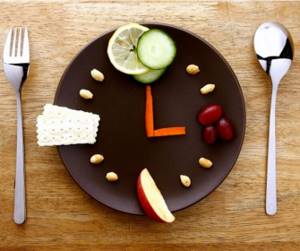
You need to eat on such a diet three times a day, and for breakfast it is better to set aside time from 7 to 9 am, lunch to be held between 11 and 13 pm, and for dinner leave time from 16 to 18 o'clock. After six o'clock in the evening, eating, as on any other diet, is prohibited. Only a small snack before bed is allowed in the form of any unsweetened fruit or a glass of low-fat fermented milk product. If you really want to eat in between main meals, you can snack on an apple, a small amount of nuts or seeds.
Leaving the diet should also not be abrupt, but gradual. Especially in cases where it lasted more than 2 weeks. To do this, you can first introduce higher-fat dairy products, then you can add fish to your diet. On about the third or fourth day, you can try boiling a small piece of lean meat, preferably chicken, turkey or beef.
It is recommended to repeat this diet no more than once every two months.
There are several types of vegetarian diet. And depending on what results you want to get, you need to choose one or another type of power system:
- lacto-vegetarian diet - allows you to eat dairy and fermented milk products;
- lacto-vegetarian diet - characterized by the addition of only milk to the diet as a source of calcium;
- lacto-ovo-vegetarian diet - a principle of weight loss that allows the use of dairy products and poultry eggs;
- vegetarian diet for athletes - based on a balanced and strict distribution of proteins, carbohydrates and fats;
- vegetarian protein diet - involves consuming large amounts of protein, which is mainly found in dairy products, legumes, seeds, nuts, eggs and so on.
Rules
A vegetarian diet for weight loss is aimed at natural fat burning and renewal of the body. If you strictly follow the rules and correctly combine the components of your diet, it helps you lose 10 kg in one to two weeks.
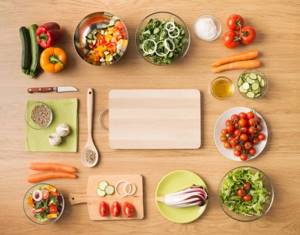
To correctly calculate calorie intake and portion sizes, you need to purchase simple electronic scales, learn to count the calorie content of dishes, and the number of calories your body needs. It is important to follow the rules for preparing dishes for a vegetarian diet, namely:
- exclude fried foods;
- use salt sparingly;
- avoid the use of spices and other flavorings, including vinegar; it can be replaced with lemon juice.
Sample menu for a week of vegetarian diet
This menu is approximate, that is, based on it you can create your own weight loss plan. Vegans can remove eggs and dairy from their diet and add more plant-based foods. However, when creating your own menu for the week, you should not increase the portions, since the weight loss system is aimed at reducing the daily calorie intake. Reviews from those who have lost weight say that with the help of such a vegetarian diet you can easily and effortlessly lose up to 4 kg in a week.

Monday:
- 08.00 – 150 grams of buckwheat or oatmeal porridge with milk, 200 grams of any low-fat fermented milk product;
- 12.00 – 200 grams of vegetable soup, 200 grams of fresh vegetables, seasoned with lemon juice or olive oil, a slice of rye or whole grain bread;
- 17.00 – 200 grams of vegetables cooked in a steamer, 150 grams of boiled brown rice.
Tuesday:
- 08.00 – two hard-boiled eggs, a piece of rye or bran bread, a tomato and low-fat cheese;
- 12.00 – 200 grams of celery salad with cheese and apples, seasoned with lemon juice or olive oil;
- 17.00 – 150 grams of zucchini caviar, two medium baked potatoes, two slices of whole grain bread.
Wednesday:
- 08.00 – 150 grams of rice milk soup, two pears, 150 grams of low-fat yogurt without additives;
- 12.00 – 200 grams of soybean soup with tofu, 150 grams of steamed or steamed vegetables, a sesame bun, a small orange;
- 17.00 – 200 grams of stewed mushrooms with onions and vegetables.
Thursday:
- 08.00 – one hard-boiled egg, half a cucumber, parsley, a slice of bran bread, a glass of low-fat fermented milk product;
- 12.00 – two small apples, 200 grams of pepper stuffed with rice and vegetables;
- 17.00 – two small potatoes, boiled in their jackets, 150 grams of boiled green beans, two small tomatoes.
Friday:
- 08.00 – 100 grams of oatmeal with milk, 200 grams of any low-fat fermented milk product;
- 12.00 – 200 grams of lentil and bean soup, cabbage and carrot salad, seasoned with lemon juice or vegetable oil;
- 17.00 – 250 grams of vegetable stew.
Saturday:
- 08.00 – 100 grams of low-fat cottage cheese, 150 grams of low-fat fermented milk product, 100 grams of fresh berries;
- 12.00 – 200 grams of lean borscht, 150 grams of vegetable vinaigrette, one small apple;
- 17.00 – 150 grams of stewed cabbage with mushrooms, two slices of rye or whole grain bread, 200 grams of low-fat fermented milk product.
Sunday:
- 08.00 – 150 grams of low-fat drinking yogurt without additives, one small orange, 150 grams of cottage cheese casserole;
- 12.00 – 200 grams of pearl barley porridge with milk, 150 grams of cauliflower salad and olive oil, 200 grams of tomato juice;
- 17.00 – 200 grams of vegetable casserole with potatoes, 150 grams of asparagus cooked in a steamer.
Other Diet Options
In essence, the prefix “veg” means eliminating meat from the diet. But vegetarianism contains many nuances relating not only to food, but to lifestyle. There are more than a billion vegetarians on the planet. Adherents of this food system are divided among themselves into groups that differ from each other not only in ideology, but also in the products they consume. The main groups are vegetarians and vegans. A significant difference between a vegetarian and vegan diet is the strictness of the diet.
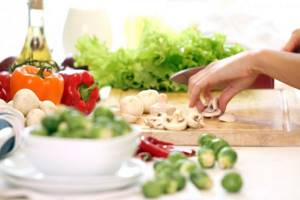
Vegans do not eat any meat, refuse milk and fish, and exclude eggs from their diet. In rare cases, honey can be consumed. Official medicine and science consider such a very rigid system harmful. Complete rejection of animal protein entails vitamin deficiency, decreased iron levels to the point of anemia, and severe weight loss. Naturally, strict adherence to the requirements causes serious health problems. In their lifestyle, vegans are guided by moral principles, placing at the forefront of their worldview an uncompromising attitude towards the exploitation of animals and, accordingly, towards meat and milk. Along with excluding meat dishes from their table, vegans do not wear clothes or use household chemicals obtained as a result of the addition of animal materials during production. They refuse to visit zoos and circuses, citing the fact that animals are kept in captivity there, etc.
Vegetarians prefer plant foods, but also consume milk and dairy products, eggs, fish and seafood, and poultry. Their diet completely lacks pork, beef, and lamb. There are ambivalent attitudes towards honey, but this group’s soft attitude towards some types of food allows it too. For some, a plant-based diet is a way of life, for others it is a way of eating that maintains health. Doctors note that such a rich diet benefits the body.
A large group of ordinary vegetarians is divided into several subgroups:
- Lacto vegetarians, eating geobotanical food, can afford milk, kefir, sour cream, and butter. This system is widely propagated by Indian philosophical and religious movements.
- Ovo - a vegetarian program excludes the consumption of milk, but allows the use of eggs and honey for food. From an ethical point of view, diets containing eggs are justified because modern poultry farming supplies unfertilized eggs, meaning their contents are not a living thing. In addition, eggs are present in many dishes and baked goods. Thus, this system is considered a democratic form of fasting. It is good for those who cannot tolerate dairy delicacies.
- The most popular subtype is considered lacto-ovo vegetarianism. Adherents of this trend do not eat poultry and animal meat, fish and seafood, but add eggs and milk to their food.
Lacto-ovo vegetarians are divided into two subgroups:
- The first group refuses to eat meat for ethical reasons and compassion for animals;
- The latter adhere to a similar eating regimen, wanting to improve their health.
There are several other types of dietary systems related to each other:
- Fruitarianism, for example, involves eating only fresh fruits, provided that they are grown and obtained without damaging the plants themselves. This very dangerous eating pattern leads to catastrophic weight loss and serious health problems.
- Su vegetarianism is widespread among Buddhists. The main principle is the exclusion from the diet of livestock and crop products that have an unpleasant odor (for example, onions, garlic).
- A system based on the consumption of cereals and legumes is called macrobiotic. However, it is considered vegetarian only because it contains fish.
- Raw foodists eat any vegetables, fruits, and nuts without subjecting them to heat treatment.
When choosing your diet from the above options, it is imperative to consult a doctor or professional nutritionist. Refusal of animal protein, and even more so switching to only fruits or raw vegetables, can lead to undesirable consequences and deprive the body of important substances it needs.
Sports
An athlete's standard menu necessarily contains a large amount of animal protein. The vegetarian sports diet suggests replacing animal proteins with plant proteins and achieving results without consuming meat or even dairy products. Contrary to the standard view of sports nutrition, the benefits of a plant-based diet have been proven by the practice of vegetarian athletes. It is important to adhere to the following rules:
- You should not completely exclude or greatly reduce foods containing carbohydrates from your diet. Their use is necessary to support the body's performance during intense training. Slow carbohydrates should be eaten before training in combination with a small amount of protein.
- Plant protein should be consumed immediately after training in combination with a small amount of carbohydrates. This will allow the body to build muscle tissue.
- When dieting in combination with exercise, you need to drink plenty of clean water to avoid dehydration.

Sometimes vegetarian athletes include protein shakes in their diet that are made without the use of animal protein. However, you can do without them.
Menu for the week
The selection of dishes for a sports diet is quite varied and satisfying. The food package for athletes includes the main types of food:
- all vegetables, stewed, boiled or raw;
- fruits - all types, prepared in any way;
- greens, all types of leaf salads;
- legumes: lentils, beans, chickpeas, peas;
- grain crops: brown rice, buckwheat, millet, wheat, hemp seeds, sunflower seeds, etc.;
- pasta, bread;
- oils – rapeseed, sunflower, flaxseed, olive, grape, etc.
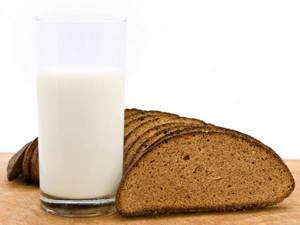
Portion sizes are selected individually, depending on the initial data and physical activity. If you feel that you are full, it is acceptable to refuse some dishes. If you are actively involved in sports, variety in your diet will be ideal for staying in shape.
The menu below is designed for athletes who consume protein shakes during or after training. If you don’t want to drink them, be sure to include chicken eggs in your diet.
The first day
- Breakfast: a glass of low-fat cow's milk (can be replaced with soy milk, but not advisable), one piece of bran bread.
- Second breakfast: oatmeal with water, soy flour bun, freshly squeezed juice.
- Lunch: a bowl of vegetable soup, steamed or grilled fish, soy sauce. As a side dish for fish, boiled legumes (beans, beans, peas). For the third, a glass of herbal tea.
- Afternoon snack: a glass of low-fat kefir, rye bread.
- Dinner: boiled rice, preferably brown or brown (200 g) and shrimp (15-20 pcs.), a cup of unsweetened green tea.
- If you still feel hungry, eat one small orange before bed.
Second day
- Breakfast: oatmeal with water, preferably steamed, orange, herbal tea.
- Second breakfast: 100 g of low-fat cottage cheese mixed with fresh fruits or berries, for example, pear, dates, plums.
- Lunch: milk soup, seafood, vinaigrette made from steamed vegetables, soy bun with berries.
- Afternoon snack: a glass of freshly squeezed apple juice, a small soy bun.
- Dinner: buckwheat porridge with stewed mushrooms, a glass of green tea.
- At night, you can eat a small piece of bun with butter and drink apple and sea buckthorn juice.
The third day
- Breakfast: 100 g of fresh cottage cheese with a little honey, a cup of black coffee without sugar or tea.
- Second breakfast: fresh pineapples about 200 grams. Canned fruits are acceptable, but only if they do not contain sugar.
- Lunch: vegetable soup in fish broth, boiled new potatoes, salad of fresh cucumbers, tomatoes and olives, seasoned with lemon juice and vegetable oil, fresh juice or compote without sugar.
- Afternoon snack: a handful of walnuts, a drink of still mineral water with fresh lemon or orange juice in a 1:1 ratio.
- Dinner: rice with boiled vegetables, green tea without sugar.
- Before going to bed, you can drink a glass of kefir.
Fourth day
- Breakfast: Rice pudding and half a glass of skim or soy milk.
- Second breakfast: fruit salad dressed with natural yogurt, a glass of pineapple juice.
- Lunch: lean vegetable soup, boiled seafood (mussels, squid, shrimp), stewed zucchini, wholemeal bread with bran, a glass of sparkling mineral water.
- Afternoon snack: fresh apple, bran bun, herbal tea.
- Dinner: low-fat boiled or steamed fish, a small amount of durum wheat pasta, fresh juice or compote.
- Before going to bed, you can eat an orange or kiwi.
Day five
- Breakfast: oatmeal with nuts or dried fruits, unsweetened tea or coffee.
- Second breakfast: fresh cottage cheese with banana, berry jelly.
- Lunch: Vegetable okroshka, lightly salted herring with new potatoes, rye bread, fresh berries or fruits.
- Afternoon snack: fresh fruits and berries with honey.
- Dinner: boiled rice with stewed mushrooms, salad of fresh tomatoes and onions, seasoned with vegetable oil and lemon juice.
- Before going to bed, you can drink a glass of kefir.
Sixth day
- Breakfast: a bun with poppy seeds and honey, a glass of prune compote.
- Second breakfast: oatmeal with water, two tablespoons of sunflower seeds, unsweetened green tea.
- Lunch: seafood soup, mashed potatoes with soy milk, green olive salad with fresh herbs, natural grape juice.
- Afternoon snack: low-fat fresh cottage cheese with raisins, mineral water with lemon or orange juice.
- Dinner: stewed fish, baked zucchini, boiled green peas, unsweetened green tea.
- At night you can eat an orange or kiwi.
Day seven
- Breakfast: a glass of kefir with fresh fruit or berries, a wholemeal bun.
- Second breakfast: fruit salad of banana, apple and nuts, unsweetened tea or herbal infusion.
- Lunch: buckwheat porridge with stewed mushrooms, green salad of celery, lettuce, dill and parsley, seasoned with vegetable oil, fresh apple juice.
- Afternoon snack: a glass of kefir with wheat bread.
- Dinner: boiled rice, stewed seafood, green tea.
- Before going to bed, you can drink fruit or berry jelly.
Protein
A protein diet for vegetarians differs from a classic low-carbohydrate diet due to the specifics of the diet, so the diet is based on the consumption of foods with a high protein content and the right combination of dishes.
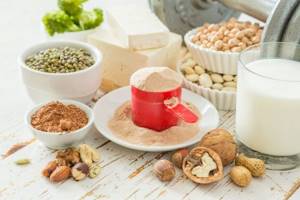
Plant sources of protein include legumes, soybeans and soy-based products, barley and corn. Nutritionists strongly recommend including milk and dairy products, quail and chicken eggs in your diet. If your diet is strictly vegan, you need to be prepared for the following problems:
- excess protein leads to increased stress on the kidneys and adrenal glands, contributing to the development of chronic diseases and the formation of stones;
- excessive loss of fluid contributes to the rapid leaching of calcium from the body, thereby harming bones, teeth, hair and nails;
- reduction of cholesterol below the permissible level, which is fraught with emotional disorders, circulatory disorders, and chronic digestive system disorders;
- increased blood clotting, increased risk of blood clots.
In addition to the above problems, there is also a risk of gaining weight rather than losing it. The body needs protein to build muscle mass, but simply putting it into the body is pointless. Low-carbohydrate diets should always be combined with active physical activity, otherwise the effect will be either weak or negative.
Menu
The menu below for vegetarians contains chicken and quail eggs, cheeses, and yoghurts. Nutritionists strongly do not recommend giving up these foods. At one meal you should consume no more than 300 grams of total weight of food. During the day, you need to drink plenty of fluids - at least two liters of clean drinking water.
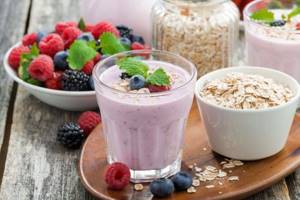
Monday
- Breakfast: steamed oatmeal porridge, a cocktail of natural unsweetened yogurt and berries, wholemeal wheat bread.
- Lunch: lean soup based on green lentils, boiled quinoa with almonds and raisins, diet bread, berry or fruit juice.
- Afternoon snack: nuts or fruits.
- Dinner: boiled corn with stewed vegetables (carrots, zucchini, eggplant, onions, tomatoes), green tea.
Tuesday
- Breakfast: sprouted wheat or legumes, carrot and orange smoothie.
- Lunch: vegetable soup with legumes, durum wheat pasta, soy sausages or sausages, fruit compote.
- Afternoon snack: nuts or fruits.
- Dinner: vegetable salad with chickpeas, steamed buckwheat porridge, a glass of milk.
Wednesday
- Breakfast: hard-boiled chicken or quail egg, natural unsweetened juice, rye bread.
- Lunch: vegetable puree soup, boiled hummus or green peas, rye bread, fruit compote.
- Afternoon snack: cashew nuts.
- Dinner: stewed vegetables, tofu soy cheese, a glass of fermented baked milk.
Thursday
- Breakfast: pearl barley porridge, pumpkin smoothie, green apple.
- Lunch: vegetable soup with chickpeas, vegetable stew, baked in the oven, diet bread, a glass of juice.
- Afternoon snack: roasted chestnuts or fresh vegetables.
- Dinner: boiled broccoli, hard-boiled chicken egg, glass of soy milk.
Friday
- Breakfast: hard-boiled chicken or quail egg, natural unsweetened juice, rye bread.
- Lunch: Indian dhal soup based on beans and coconut milk, green peas, rye bread, compote or juice.
- Afternoon snack: any nuts.
- Dinner: flax seed porridge, a glass of unsweetened yogurt.
Saturday
- Breakfast: soy cheese, strawberry and banana smoothie, green tea.
- Lunch: pumpkin puree soup, stewed beans with vegetables, asparagus, juice or compote.
- Afternoon snack: cottage cheese with fruit.
- Dinner: brown rice with corn, fermented baked milk or natural unsweetened yogurt.
Sunday
- Breakfast: barley porridge with raisins, whole grain wheat bread, cocoa with milk.
- Lunch: light vegetable soup with rice cereal, pilaf with chickpeas, diet bread, juice or fruit drink.
- Afternoon snack: unsweetened yogurt or fruit.
- Dinner: stewed vegetables, tofu cheese, a glass of kefir or fermented baked milk.
Sample menu for a month of vegetarian diet
Those who are confident in their abilities and want to continue their vegetarian lifestyle should turn their attention to a special method for losing weight, focused on a month. You can continue to stick to the previous menu, starting again every week and looping it in this way. Or try creating your own weight loss plan based on the options below.
Breakfast:
- natural freshly brewed coffee, 2 slices of rye bread, 150 grams of fresh berries;
- freshly squeezed fruit juice, 2 slices of whole grain bread, grapefruit or orange;
- 250 grams of low-fat milk and a bran bun;
- pineapple juice, fruit salad, grain bread;
- cottage cheese casserole or 150 grams of low-fat cottage cheese, drinking yogurt without additives, orange;
- natural freshly brewed coffee or tea, carrot casserole, apple, slice of bran bread;
- green tea, oatmeal with kefir or milk.
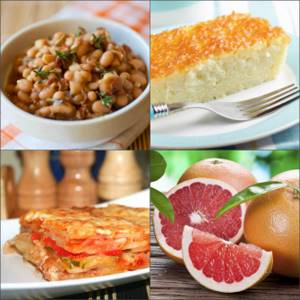
Dinner:
- 150 grams of stewed beans, a little asparagus, herbal tea;
- rice casserole with broccoli or cauliflower, orange, assorted vegetables with olives, seasoned with lemon juice or vegetable oil;
- 100 grams of rice with stewed vegetables, pear;
- potato casserole with vegetables, salad of fresh vegetables and herbs, fresh juice, apple;
- two slices of rye bread, vegetable salad seasoned with lemon juice or olive oil;
- vegetable carrot cutlet, 150 grams of rice, grapefruit or orange;
- baked green beans, 200 grams of cabbage salad with carrots, unsweetened fruit;
- buckwheat with vegetables, assorted fruits.
Dinner:
- rye bread with vegetables, compote, any fruit;
- 150 grams of low-fat cottage cheese, vegetable juice;
- one hard-boiled egg, 250 grams of low-fat fermented milk product;
- sweet pilaf with prunes and dried apricots, green tea with honey;
- 150 grams of oatmeal, omelette with seaweed, black tea;
- buckwheat porridge with mushrooms;
- potato casserole with asparagus, mushrooms, zucchini and tomatoes.
Vegan diet for weight loss: menu

The list of foods that can be used to prepare vegan dishes is varied. And this despite many restrictions. These include:
- Vegetables and fruits;
- Nuts and legumes;
- Berries and seeds;
- Soy products;
- Dairy soy products: milk, tofu, yogurt;
- Mushrooms;
- Cereals.
There is somewhere to go for a walk. The main thing is to replace the usual meat for a side dish with its analogues.
So what do we have? Sample menu for weight loss:
Breakfast
Breakfasts can be light, but high in calories. Muesli with soy yogurt, any dairy-free porridge, a piece of tofu cheese.
Dinner
Any vegan soup is great for lunch. For the main course - any side dish with soy meat or legumes.
Afternoon snack
Fruits, nuts, juices, smoothies
Dinner
For dinner, eat stewed vegetables or any light vegetable salad.
By the way, such a miracle of technology as a blender will provide invaluable help to a vegan. Using it, you can prepare a variety of fortified smoothies, recipes for which are presented on our website.
Sports vegetarian diet
Such a diet should be followed by athletes constantly, in other words, become their way of life. It involves eating foods with a high concentration of proteins. These include:
- all legumes: soybeans, beans, beans and peas;
- various seeds and nuts;
- spinach.
For athletes, a lacto-vegetarian or lacto-ovo-vegetarian diet is most suitable, since, in addition to other foods, they allow the consumption of milk, fermented milk products and eggs.

People who play sports need protein as a building material for muscles. Carbohydrates are needed to restore energy that is spent on physical activity. Thus, a sports vegetarian diet should be fairly balanced, and the weekly menu should contain approximately 1000 grams of protein.
This diet will be useful for athletes, as it:
- helps relieve stress and stabilizes the functioning of the nervous system;
- improves digestion and functioning of the gastrointestinal tract;
- charges with energy and vigor, quickly restoring expended strength.
Reviews and results of losing weight
There are objective reasons that guide people who choose a vegetarian system as a way of life. Some care about the safety of the animal world, others care about their health. Be that as it may, in society they look at vegetarians with some bewilderment, sometimes with sympathy for no clear reason, sometimes with irony, and sometimes they are perceived as sick people. Let's see how those who have experienced it themselves respond to vegetarianism. Below are reviews and results from different people who, due to personal preferences, became vegetarians.
Margarita Chekalina, Nizhny Tagil
I became a vegetarian 2 years ago. Following a vegetarian diet helped me get rid of constipation and atopic dermatitis. In addition, I lost a lot of weight when I started eating right, my weight was about 95 kg with a height of 169 cm. Now I weigh a little over 70 kg. Before switching to lean food, you need to prepare yourself, your body. Be sure to think about what products you will use and what menu you will create. A few days before going on a diet, cleanse your intestines, and the day before, eat only raw apples, pears, figs, tomatoes, cucumbers, beets, and herbs. You need to drink a lot of water, it is better to drink mineral water, but only without gas. The next day, do a fasting: do not eat anything, drink water with lemon juice and honey. Just before starting a new lifestyle, eat raw vegetables or tree fruits again. Start the next day with a vegetarian breakfast. Continue your fasting diet.
My body cleared up within a week. How it happened: fecal stones came out, I lost more than three kilograms, numerous acne disappeared. Watching the movie "Earthlings" helped me a lot. I hope it will help you withstand the fast.
Olga Petushinskaya, 26 years old, Saransk
I got hooked on the vegetarian system more than a year ago. Somehow a book caught my eye, I don’t remember the author now. But we were talking about the dangers of animal protein, fats and other food that did not grow from the earth. I remember there was a lot of talk about low-carb foods. Something happened to me, I began to follow the author’s advice. Of course, my desire to lose weight had an impact. During my school and student years, I was distinguished by my plumpness and always looked with envy at my slender girlfriends.
The first thing I did when I started my vegetarian epic was to give up alcoholic beverages, fats, animal proteins, and sweets. Instead, I discovered surprisingly tasty, nutritious dried fruits. Sandwiches with sausage, fried eggs, fast food were replaced by porridge with vegetable oil, lean soups, I always ate salads dressed with lemon juice. However, healthy recipes are easy to find on the Internet. I won’t dwell on this.
I'll tell you about my impressions. The first month of proper vegetarianism shocked me. At first I was covered in acne. I panicked, of course. I had to see a dermatologist. Fortunately, the guy was understanding and explained that the body is thus cleansed. He advised me to wait a little. Indeed, the results met my best expectations. After a few months, the skin became velvety, a very pleasant soft pink shade. Even my friends ask me what cream has improved my skin so much. Another good thing is that we all sweat, but vegetarians, frankly speaking, sweat without an unpleasant odor. That's for sure.
There was one more problem: my hair began to fall out. That's why I still take multivitamins. The nails have become stronger, they do not flake or break. I also boast of healthy sleep, I sleep like a baby.
Now I have to withstand the attacks of my mother, who considers vegetarianism almost a disease, she is sure that it can affect hormonal levels... It’s hard to explain that this is my way of life, that I like to feel light, free, always fit and slim. But I can handle!
Liza Almatayeva 15 years old, Cheboksary
I believe that you should eat everything that goes into the refrigerator. And if I feel bad without meat, do I like sandwiches with sausage and mustard? I will not torment myself with any restrictions. Here's more, there is grass!!!! Our neighbor is on a diet and has become skinny as a board.
Vladimir Chegodaev 35 years old, physical education teacher, Bratsk
If a person can do without meat, let him not eat it. I don’t understand at all why, for example, some meat-eaters are trying to convince vegetarians that they can’t live without meat, that they need to replenish their vitamin reserves. I believe that products from the garden contain all the necessary substances. I go in for sports, adhere to the lacto-ovo-vegetarian system, I am happy with everything, especially my victories in amateur sports. A balanced lacto-ovo vegetarian regimen provides the body with all the necessary substances. For example, there is no need to worry about a lack of vitamin B12 when eating eggs.
Antonina Berezina, cook, 44, p. Novo-Alekseevka, Chishminsky district of the Republic of Belarus
I heard enough about the dangers of meat and other fatty delicacies, and decided to become a vegetarian. In our village this is not easy to do: we eat only meat and potatoes. But I really wanted to lose weight, my clothes were getting too small. Out of stupidity, I stopped eating not only meat, but also milk and eggs. Of course, the lack of vitamins made itself felt. I started yelling at everyone, I was always in a bad mood, I wanted to sleep, I can’t express how much. It got to the point where I started fainting. I went to the paramedic and they took blood for analysis. It turned out that my hemoglobin was low. And all because of vegetarian food. In general, I gave up the dream of a slim figure and thin waist, I started eating meat, fatty pancakes, and pancakes. You know, life has improved. I want to sing in the morning. So, I don’t think that vegetarian food is healthy and helps you lose weight. She didn't help me!
Mikhail Ostroverkh, 55 years old, mechanic, Taganrog
I remember my first experience with Lenten food very well. I started this business 8 years ago, when problems with cholesterol and high blood pressure began. The first month was difficult, iron deficiency developed. After a while, I felt discomfort in my stomach, and I wondered why my stomach was swelling? I did some reading on the Internet, consulted with a doctor, and found out that this was due to the abundant intake of fiber and fruit dietary fiber from fruits and root vegetables, which I ate in abundance. They cause increased gas formation, flatulence, and sometimes diarrhea. I had to adjust the recipes, added legumes and cereals made from them, limited apples and cabbage, which cause discomfort. Now I feel quite healthy, and my cholesterol has dropped to normal without pills!
Advantages and disadvantages of a vegetarian diet
Reviews from those losing weight say that in a week of such a diet you can lose up to 4 kilograms of weight, provided that absolutely all principles are followed. As a rule, almost everyone loses 2 kilograms. In addition to this wonderful effect, while losing weight, you can improve your health and cleanse your body, speed up your metabolism, and improve your overall well-being. There are quite a lot of approved products, so it won’t take a lot of time to find and prepare them. Also, a vegetarian diet helps sharpen the mind and has a positive effect on life expectancy.
The disadvantages of a vegetarian diet include the lack of nutrients that enter the body with animal food. Opponents of this lifestyle argue that it is impossible to completely replace them with plant-based products. It will also be difficult for those who cannot imagine their life without meat and seafood to plunge headlong into such a system. But what is most important here is the psychological aspect and desire. After all, as you know, great desires provide great opportunities.
Best materials of the month
- Coronaviruses: SARS-CoV-2 (COVID-19)
- Antibiotics for the prevention and treatment of COVID-19: how effective are they?
- The most common "office" diseases
- Does vodka kill coronavirus?
- How to stay alive on our roads?
Are humans meat eaters or herbivores?
Almost all disputes about the need for meat to maintain normal human life rest on the facts of the physiological structure of the individual’s body. But despite the fact that these facts remain unchanged under any interpretation, both meat-eaters and vegetarians find in them the basis for confirming their own concept.
Below are four facts that represent humans both from the perspective of carnivorous representatives of the animal world and from the perspective of herbivores:
- The structure and location of the teeth of a person with underdeveloped canines and large, working incisors indicates the individual’s predisposition to chewing plant foods. However, only in carnivores the tooth is completely covered with enamel and there is a tendency to replace milk teeth with molars once. Such a characteristic of the structure of teeth is possible only in omnivorous creatures (for example, bears).
- The saliva of predatory animals is not fermented, and their oral cavity constantly maintains an acidic environment that human teeth simply could not withstand. In terms of alkaline parameters and the number of enzymes, the salivary fluid of a human individual is almost identical to that of herbivores.
- The nature of the structure of the human stomach has no analogues - it is single-chambered and glandular, like that of predators and omnivores, but its pH level, like that of herbivores, corresponds to 4-5. The size of the stomach relative to the volume of the entire digestive system in humans is closer to that of herbivores (approximately 25% versus 65% in carnivores).
- The human intestine is 7-8 times the length of his body - this is 4 times more than that of a predator and 4 times less than that of herbivorous creatures. Such average sizes of the intestinal cavity allow a person to completely digest food of plant origin and easily cope with moderate portions of meat.
We can conclude that in the process of evolution, man was forced to become an omnivore and, although his body is able to withstand long periods of a meat-free diet, plant food alone is not enough for the normal functioning of the digestive organs.
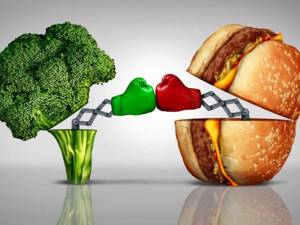
conclusions
Vegetarianism is a way of life for a fairly large number of people who, for one reason or another, prefer to avoid eating animal products. However, this does not prevent them from looking good, being slim and fit. Based on their diet, a vegetarian diet was invented, which involves eliminating meat products from food for a while. Thanks to this, the body is cleansed, the functioning of the cardiovascular and circulatory systems improves, and it has a beneficial effect on the nervous system. Reviews from many people who have tried this nutrition system indicate that their sleep has improved significantly, nervousness has decreased, and their body feels light and has a significant boost of energy. In addition, with the help of such a diet, you can easily lose several kilograms of excess weight without experiencing the discomfort that usually accompanies various diets.
More fresh and relevant information about health on our Telegram channel. Subscribe: https://t.me/foodandhealthru
We will be grateful if you use the buttons:
Reviews about vegetarianism and sports
The combination of vegetarianism and sports is an issue of interest to tens of thousands of people who monitor their health and physical fitness. Let's see what athletes say about vegetarianism:
“I switched to vegetarianism when I decided to participate in the city bikini fitness competition. I needed to quickly lose weight. As a result, I lost 4 kg in a month, and noticed a decrease in the volume in my hips and waist. I’m very pleased with the results.”
“Professional bodybuilder for more than 3 years. I switched to vegetarianism six months ago. No matter what I did, I was unable to maintain the previous volumes of muscle mass. At the same time, I gained more prominent and lean muscles. No drying has ever given such results before.”
“I became a vegetarian and my muscle mass began to go away. At first I wanted to start eating meat again, but then I liked the way I looked. By the way, for the first time in 10 years I saw abs. Before the transition, I could not live a day without meat. It was a staple in my diet."
“I gave up meat, my strength levels dropped. I hope it’s a temporary phenomenon and everything will be restored in a couple of months.”
Quitting meat and losing weight
Judging by the reviews, giving up meat in losing weight is of great importance. The advantage is that a person does not need to starve himself or split regular portions into many small ones, which is very inconvenient when he is seriously busy. You can continue to eat three to four times a day in the usual volumes and still lose extra pounds. A complete refusal of meat, according to reviews of those who have chosen such a nutritional system for themselves, entails an increase in the consumption of foods rich in fiber (porridge, yeast-free bran bread, fruits, nuts, beans and vegetables), and the accumulation of calories, even when eating large portions of these products, minimal.
However, doctors warn that veganism and other forms of strict vegetarianism, which do not allow protein substances to enter the body, are a bad option for those losing weight. A carbohydrate diet will help an intemperate individual get used to food restrictions, remove waste and toxins from the body, but in order not to lose muscle tone and lose weight evenly, it is important to consume all types of BJU compounds. The necessary elements are found in milk and fermented milk products, fish, and egg whites.
In addition to the advantages, giving up meat for the purpose of losing weight is fraught with the danger of breakdowns. Often people, to compensate for the lack of their usual feeling of fullness, begin to intensively eat foods rich in light carbohydrates - pasta, baked goods. This approach to vegetarianism leads to the opposite effect and the weight does not go away, but begins to increase.
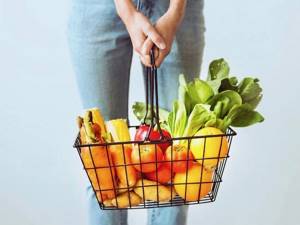
Dietary features when giving up meat
Expecting instant benefits from giving up meat, beginning vegetarians may not be prepared to face a number of inconveniences that await them on the path to a bloodless diet. Thus, having switched to plant foods, people often notice decreased vision, weakened memory and mental acuity, and a sharp deterioration in external data (the condition of hair, teeth and skin). All these negative changes are associated with a deficiency in the body of essential vitamins, microelements and amino acids previously obtained from meat products.
How to eat properly so that the consequences of giving up meat do not lead to the development of serious pathologies? A complete vegetarian diet must include the following products:
- sesame, peanut and pumpkin seeds are a source of amino acids;
- soybeans, chickpeas and lentils are a source of histine;
- cashew nuts, almonds, chickpeas are a source of isolein;
- cereals, all nuts, lentils - this is leucine;
- any legumes are a source of threonine.
It should be remembered that such essential components of human health as vitamins D and B12 are found only in meat, fish, eggs and dairy products. It is impossible to get them through eating plant foods. Fans of the vegan trend should better take care of purchasing the necessary vitamins in a separate, synthesized form, sold from the pharmacy in the form of multicomplexes, tablets and ampoules.
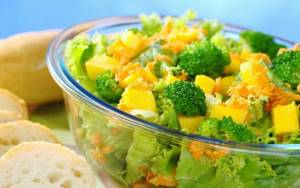
Types of vegetarianism
Giving up meat is a conscious act of a person’s transition from pantophagy (omnivorousness) to a table limited to a set of products exclusively of plant origin. With a non-strict approach to the concept of vegetarianism or with internal guidance of ideological goals (about the impermissibility of hidden murder), foods such as eggs, fish, milk, butter, and cheese may be present in a person’s diet.
The very concept of vegetarianism includes several areas:
- Veganism. The diet of a person who has chosen this life concept contains only plant products for which he allows the use of heat treatment that does not involve frying, smoking or cooking.
- Raw food diet. When choosing this direction, an individual excludes all products of non-plant origin from his diet, and consumes acceptable food exclusively in its raw form.
- Lactovegetarianism. One of the lighter forms of vegetarianism, allowing the consumption of all types of dairy products. Thanks to the easily digestible milk protein entering the body, a person does not experience the same physical transformations and nutritional deprivations as with veganism or a raw food diet.
- Ovolacto-vegetarianism. Vegetarianism with an expanded list of permitted foods, which, in addition to milk, also includes bird eggs (any). The concept justifies itself by the fact that a person, while obtaining food for himself, is not a participant in the killing of an animal, but takes for himself products naturally produced by the animal in the course of its life.
- Fish vegetarianism. The individual’s diet is enriched, in addition to plant foods, with all types of seafood and fish. This type of vegetarianism is often chosen as a gentle diet for diseases of the heart and blood vessels.
A separate type of vegetarianism can be called a ban on red meat. This restriction on beef, pork and other types of red meat is introduced into many weight loss and diet programs that have nothing to do with the philosophy of protest against the killing of animals. People who have chosen this type of vegetarianism freely eat poultry, fish and any plant foods, receiving sufficient amounts of protein and protecting themselves from consuming large amounts of carcinogens and harmful acids along with the prohibited product.

Myths about vegetarianism debunked
Many people approach the practical side of the vegetarian concept almost unconsciously, basing their beliefs on pseudoscientific facts about the dangers of animal protein and the supposedly magical results of giving up meat. Reviews and comments from doctors allow us to look at the now familiar myths about vegetarianism from an unexpected angle:
- The myth that the meat component of lunch decomposes in the stomach long after eating, poisoning the entire body with toxins and gases, is unfounded. The fact is that the digestive process in the stomach is carried out under the influence of hydrochloric acid, which does not allow food to linger in the gastrointestinal tract longer than it should.
- The opinion about the longevity of vegetarians has been repeatedly challenged by real facts confirming that the most ardent fans of the bloodless diet, for example, Indians, have a rather low life expectancy threshold of about 68 years.
- The statement that soy protein is identical in its beneficial and nutritional properties to animal protein is erroneous. Soy has a protein with a biological value much lower than that of fish, and the most important amino acid for the body, methionine, is completely absent.
- The belief that vegetarians are not prone to obesity has long been refuted by simply counting the calories contained in various carbohydrate foods. Since it is believed that meatless foods can be consumed in large quantities without harming the figure, fans of a meat-free diet often overeat and consume as many (or more) calories than meat eaters.
The final myth about the high energy potential of vegetarians as opposed to the low activity of meat eaters has not been confirmed by any research. However, there is contrary evidence that the inhibition of metabolic processes, which, according to medical reviews, occurs as a result of giving up meat, negatively affects the quality of life of vegetarians themselves.
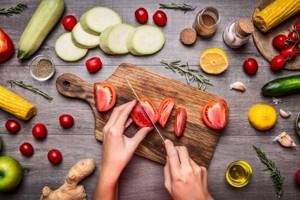
The benefits of giving up meat
Arguing the wisdom of vegetarian nutrition, fans of the concept cite many scientifically proven facts about the dangers of meat-eating and the benefits of a Lenten menu:
- By consuming plant foods, a person prevents the accumulation of harmful cholesterol in the body, which obviously eliminates the threat of diseases such as atherosclerosis and other cardiovascular pathologies;
- lovers of processed meat, especially fried or smoked, more often than others suffer from cancerous tumors in the gastrointestinal tract and liver;
- by eating only low-calorie plant foods, a person loses excess weight faster;
- people who practice light forms of balanced vegetarianism, which allows them to drink milk and eat birds’ eggs, provide their body not only with all the necessary vitamins, but also with a sufficient amount of healthy protein;
- vegetarians are 60% less likely than meat eaters to develop type 2 diabetes;
- lovers of lean food are more energetic and less susceptible to chronic diseases.
Sooner or later, all people who practice yoga come to accept the philosophy of vegetarianism. Judging by their reviews, giving up meat and poultry helps them not only quickly get into a comfortable physical state required for exercise, but also ease their minds by choosing for themselves the concept of “ahimsa” - non-acceptance of killing animals for food.
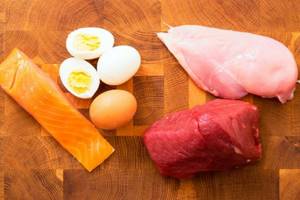
Recommendations from nutritionists
The attitude of doctors towards strict types of vegetarianism, which prohibit the consumption of white meat, milk and fish, is always negative, but medicine has no right to prohibit this practice for an adult. The only thing that experts insist on is to approach important changes in nutrition responsibly, following certain rules:
- before giving up meat, fish and dairy products, it is necessary to conduct a full examination of the gastrointestinal tract, cardiovascular system and liver;
- women of childbearing age can think about switching to a vegetarian menu only if they have a stable monthly cycle and in the absence of diseases of the genitourinary system;
- For pregnant women, experiments with the abolition of meat and dairy dishes are strictly not recommended;
- According to doctors, those who have not yet reached the age of 30 should be careful about giving up meat;
- Beginners should not create their new diet based on other people's experiences or their own preferences, as this should be done by a professional nutritionist.
The human body may not immediately respond to a shortage of familiar components, making up for the deficiency from its accumulated reserves. Therefore, it is very important not to miss the moment when these reserves are exhausted and need replenishment. A vegetarian who practices a reasonable diet without compromising his health must undergo a full medical examination at least once every six months and be tested for the presence of vitamins and minerals. If necessary, the nutritionist prescribes courses of multivitamins or medications with a high content of a specific missing element.
